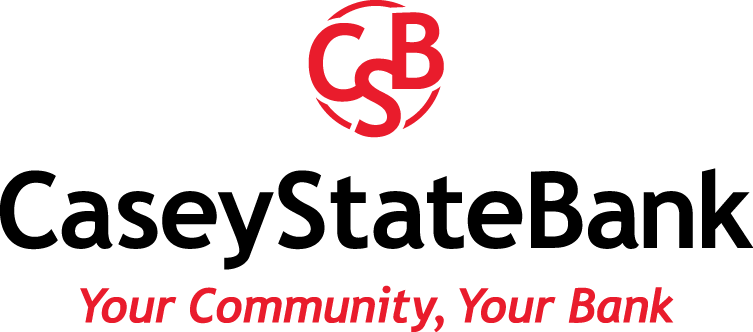Laptop, book, and cellphone all stacked together and locked with chains intertwined in an x across it.
Casey State Bank
Blog
Halt! Who Goes There? The Importance of Passwords
The concept of a password is nothing new. From the shibboleth of the ancient Hebrews to the complex watchword system of the Roman military, people have used codes and passwords to protect our security for millennia. Today’s digital passwords are no different; they keep our sensitive information safe and secure from prying eyes.
But every new app or device comes with a risk. The same technology that allows you to download music could allow somebody else to empty your bank account. If you want to keep your account safe, the first line of defense is a good, strong password.
Choosing a Password
So how do you choose a password? First, let’s talk about what you shouldn’t do. Don’t use any names, places, or birth dates and other significant dates like anniversaries. They’re easy to guess, especially with the aid of unintended clues you may have posted on social media. Hackers will scour data from these posts to use in account takeover attempts.
You should also avoid commonly guessed words like “password” and “admin,” both of which are very overused. And the most common? 123456. Numerical sequences are always a bad idea; they’re very easy for hackers to guess.
Guidelines for Strong Passwords
Passphrases are better than passwords. A phrase with multiple words that you can picture in your head is harder for hackers to break. Passphrases are also easier for you to remember than an arbitrary, artificially complicated collection of symbols and letters. Each additional character in a passphrase decreases the chances of a cybercriminal guessing or a hacking program brute-forcing their way into your account.
Passphrases let you use spaces, punctuation, and upper and lowercase letters, and they can be anything important to you, like a little-known line from your favorite book or song. But make sure to use different passphrases for each of your accounts, especially those that contain more sensitive information like financial and health data.
Another way to generate a secure password is with a password manager. Check with your IT department; your work may have a password manager available that you can use. However, if they don’t, do not download one from the internet to use with your work accounts. It must be IT-approved for safety.
It’s also important not to rely on passwords alone. A strong password is important, but hackers can use programs or social engineering to break through this level of security. For truly valuable information, like your banking info, turn on multi-factor authentication, or MFA. MFA turns on an extra step that requires a physical device, like getting a passcode through a text or app. This ensures that even if your password is compromised, nobody can access your accounts.
How Long Should A Password Be?
Your password should be at least eight characters long. Ten is better, and you should use at least sixteen characters for sensitive accounts. In this era of cybersecurity, there’s more of an emphasis now on password length instead of complexity. Still, make sure that you don’t ever let someone watch you enter a password on your computer or mobile device. Always make sure your fingers and screen are hidden from view. And never share your passwords. When you share your password, you share your account. Even if you’re comfortable with that, you have no control over who else the password gets shared with.
Password Safety with Casey State Bank
Here at Casey State Bank, we take your cybersecurity and privacy very seriously. With steps like MFA on all accounts and consumer alerts, we want to make it easier for you to safeguard your important information. For more information about keeping your accounts secure, check out our library of SAFE video topics, and explore our security page for more information about how Casey State Bank works to protect you!


